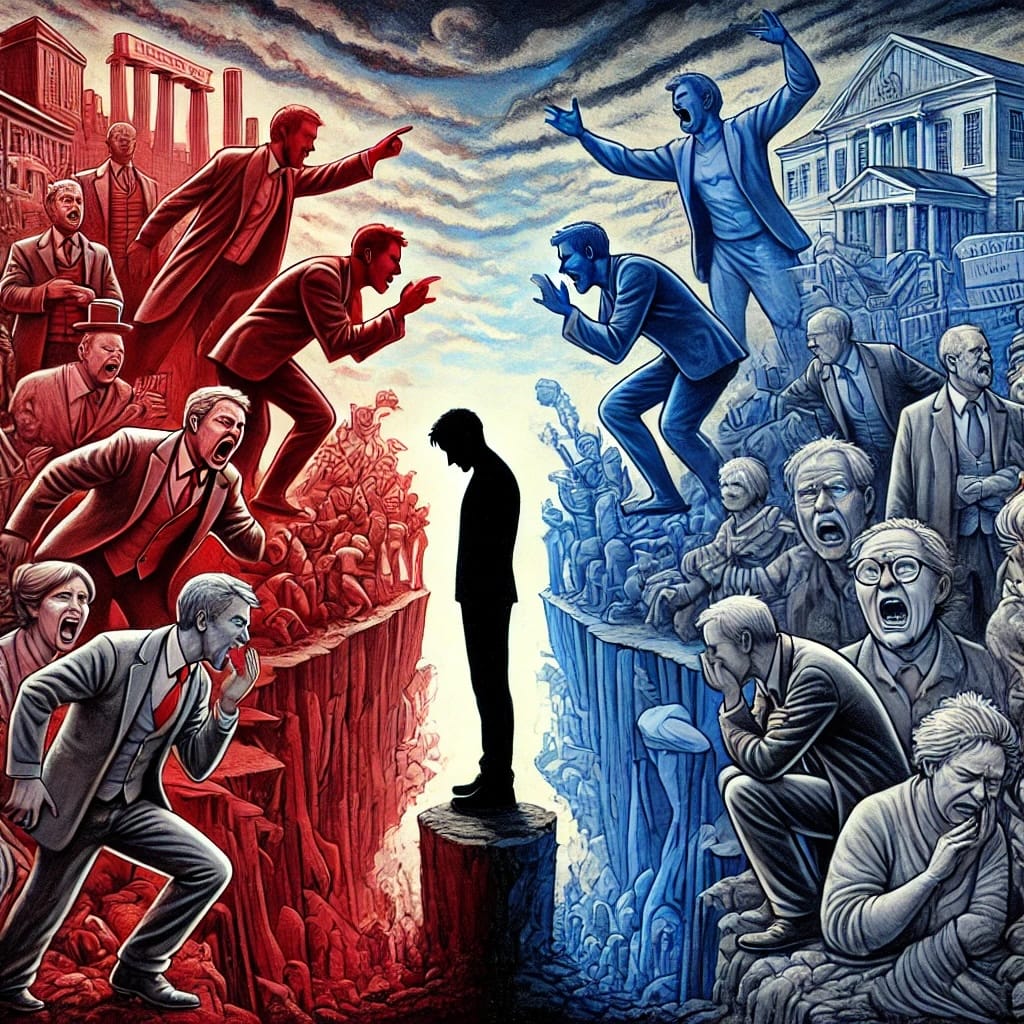Global Statistics on Men's Mental Health
Men's mental health is a pressing issue worldwide, with statistics painting a stark picture of the challenges faced by men. Let me provide you with some facts here:
❌ In Australia, suicide has overtaken car accidents as the leading cause of death in males since 1991.
❌ Australian men are three times more likely to die by suicide than women.
❌ In the United States, men die by suicide at a rate four times higher than women. Despite higher suicide rates, men are diagnosed with depression at lower rates than women in the US.
❌ Of the estimated 4,000 suicide deaths in Canada each year, close to 75% are men.
❌ Although mental illnesses are more prevalent in women, men are less likely to receive treatment or even be diagnosed.
❌ Men account for 75-80% of suicides worldwide.
❌ Suicide is a leading cause of death for men under 50 globally.
The numbers suggest that many men suffer more dire consequences and struggle in silence, unable to access or seek help due to societal pressures and stigma.
These statistics highlight the urgent need for targeted interventions and support systems tailored to men's unique mental health needs. Understanding these numbers is the first step towards raising awareness and encouraging men to seek help, ultimately reducing the stigma surrounding men's mental health.
The Importance of Addressing Men's Mental Health
Addressing men's mental health is crucial for several reasons. First and foremost, it is a matter of public health. The high rates of suicide and substance abuse among men indicate a significant unmet need for mental health support. Furthermore, untreated mental health issues can lead to a range of negative outcomes, including poor physical health, reduced productivity, and strained relationships.
Men's mental health is also important from a societal perspective. Traditional gender roles often pressure men to "man up" or "tough it out", leading to a reluctance to seek help. This stigma not only affects the individual but also perpetuates a culture where mental health issues are seen as a weakness. By addressing men's mental health, we can challenge these outdated stereotypes and promote a more inclusive and supportive environment for all.
Moreover, addressing men's mental health has economic implications. Mental health disorders can lead to absenteeism, decreased productivity, and increased healthcare costs. By investing in mental health support for men, we can improve workplace productivity and reduce the economic burden associated with untreated mental health issues.
Finally, addressing men's mental health is a matter of equity. Men from different cultural backgrounds, sexual orientations, and socioeconomic statuses may face additional barriers to accessing mental health support. By recognizing and addressing these disparities, we can ensure that all men have the opportunity to lead healthy and fulfilling lives.
Societal Factors Contributing to the Men's Mental Health Crisis
Traditional Masculinity and Gender Roles
Traditional masculinity and gender roles play a significant role in the men's mental health crisis. Societal expectations often dictate that men should be stoic, self-reliant, and emotionally restrained. These expectations can lead to internal conflicts and a reluctance to express vulnerability or seek help. The pressure to conform to these ideals can be overwhelming, leading to feelings of inadequacy and isolation.
The concept of "toxic masculinity" further exacerbates the issue. This term refers to cultural norms that associate masculinity with dominance, aggression, and emotional suppression. Men who internalize these norms may struggle to express their emotions or seek support, fearing judgment or ridicule. This can lead to a cycle of silence and suffering, where men feel unable to reach out for help.
Stigma and Silence Surrounding Men's Mental Health
Stigma is a major barrier to addressing men's mental health. The perception that mental health issues are a sign of weakness or failure can prevent men from seeking help. This stigma is often reinforced by societal attitudes and media portrayals that glorify toughness and resilience while dismissing vulnerability.
The silence surrounding men's mental health is also a significant issue. Many men are reluctant to discuss their mental health struggles, fearing that they will be perceived as burdensome or weak. This silence can lead to feelings of isolation and exacerbate mental health issues. Breaking this silence is crucial to promoting a culture where men feel comfortable seeking help and discussing their mental health.
Lack of Emotional Expression and Support
The lack of emotional expression and support is another factor contributing to the men's mental health crisis. Many men are socialized to suppress their emotions, leading to difficulties in expressing their feelings or seeking support. This emotional suppression can result in a range of negative outcomes, including increased stress, anxiety, and depression.
The lack of support networks for men further compounds the issue. While women often have strong social networks that provide emotional support, men may struggle to find similar support systems. This lack of support can lead to feelings of loneliness and isolation, further exacerbating mental health issues.
Psychological Factors Contributing to the Men's Mental Health Crisis
Male Identity and Self-Concept
The concept of male identity and self-concept is deeply intertwined with mental health. Many men derive their sense of identity from traditional gender roles and societal expectations. When these expectations are not met, it can lead to a crisis of identity and self-worth. The pressure to conform to traditional masculine ideals can result in feelings of inadequacy and self-doubt, contributing to mental health struggles.
Coping Mechanisms and Avoidance Behaviours
Men often resort to unhealthy coping mechanisms and avoidance behaviours to deal with mental health issues. These may include substance abuse, aggression, or risky behaviours. While these behaviours may provide temporary relief, they often exacerbate mental health issues in the long run. Encouraging healthier coping mechanisms and promoting emotional expression can help men manage their mental health more effectively.
Impact of Trauma and Adverse Childhood Experiences
Trauma and adverse childhood experiences can have a lasting impact on men's mental health. Experiences such as abuse, neglect, or witnessing violence can lead to long-term psychological effects, including anxiety, depression, and post-traumatic stress disorder (PTSD). Men who have experienced trauma may struggle to process their emotions or seek help, leading to a cycle of silence and suffering.
Systemic and Structural Barriers Contributing to the Men's Mental Health Crisis
Access to Mental Health Services and Healthcare
Access to mental health services and healthcare is a significant barrier for many men. Factors such as cost, availability, and stigma can prevent men from seeking the support they need. Additionally, mental health services are often not tailored to the unique needs of men, leading to a lack of engagement and ineffective treatment.
Work-Life Balance and Occupational Stress
Work-life balance and occupational stress are major contributors to men's mental health issues. The pressure to succeed professionally and provide for one's family can lead to chronic stress and burnout. Men may struggle to balance work and personal life, leading to feelings of overwhelm and exhaustion. Promoting work-life balance and addressing occupational stress can help improve men's mental health.
Social Isolation and Loneliness
Social isolation and loneliness are significant factors in the men's mental health crisis. Many men lack strong social networks and may struggle to form meaningful connections. This isolation can lead to feelings of loneliness and exacerbate mental health issues. Encouraging social connections and promoting community engagement can help combat loneliness and improve men's mental health.
Intersectionality and Men's Mental Health
Men's Mental Health Across Different Cultures and Communities
Men's mental health is influenced by cultural and community factors. Different cultures may have varying attitudes towards mental health and masculinity, impacting how men perceive and address their mental health. Understanding these cultural nuances is crucial to providing effective support and promoting mental well-being.
Impact of Racism, Homophobia, and Other Forms of Discrimination
Discrimination, such as racism and homophobia, can have a profound impact on men's mental health. Men who experience discrimination may face additional stressors and barriers to accessing mental health support. Addressing these forms of discrimination and promoting inclusivity is essential to improving men's mental health outcomes.
Breaking the Silence: Encouraging Men to Seek Help
Normalising Mental Health Discussions
Normalising mental health discussions is a crucial step in addressing the men's mental health crisis. By promoting open and honest conversations about mental health, we can reduce stigma and encourage men to seek help. Creating a culture where vulnerability is seen as a strength, rather than a weakness, is essential to promoting mental wellbeing.
Role of Male Role Models and Influencers
Male role models and influencers play a significant role in shaping attitudes towards mental health. By speaking openly about their mental health struggles and seeking help, they can inspire others to do the same. Encouraging male role models to advocate for mental health can help break the silence and promote a culture of support and understanding.
Creating Safe Spaces for Men's Mental Health
Creating safe spaces for men's mental health is essential to promoting well-being. These spaces should provide a supportive environment where men can express their emotions and seek help without fear of judgment. Community programs, support groups, and mental health initiatives can play a crucial role in creating these safe spaces and promoting mental health awareness.
Conclusion
The men's mental health crisis is a complex issue influenced by a range of societal, psychological, and systemic factors. Traditional masculinity, stigma, and lack of support are significant barriers to addressing men's mental health. Additionally, psychological factors such as identity, coping mechanisms, and trauma play a crucial role in shaping men's mental health outcomes. Systemic barriers, including access to healthcare, work-life balance, and social isolation, further exacerbate the issue. Intersectionality and discrimination add additional layers of complexity to the men's mental health crisis.
Addressing Men's Mental Health Crisis
Addressing the men's mental health crisis requires a multifaceted approach. We must challenge societal norms and stereotypes that perpetuate stigma and silence. Promoting open discussions about mental health, supporting male role models, and creating safe spaces are crucial steps in encouraging men to seek help. Additionally, addressing systemic barriers and promoting inclusivity can help improve men's mental health outcomes. By working together, we can create a culture of support and understanding, ultimately improving the mental well-being of men worldwide.
Keep in mind that, given the alarming number of men lost to suicide and the multitude of individuals grappling with mental health challenges, addressing these concerns is not merely a single-faceted matter; it is a critical public health priority that demands our attention and collective action.













Discussion